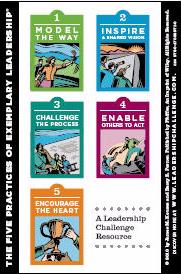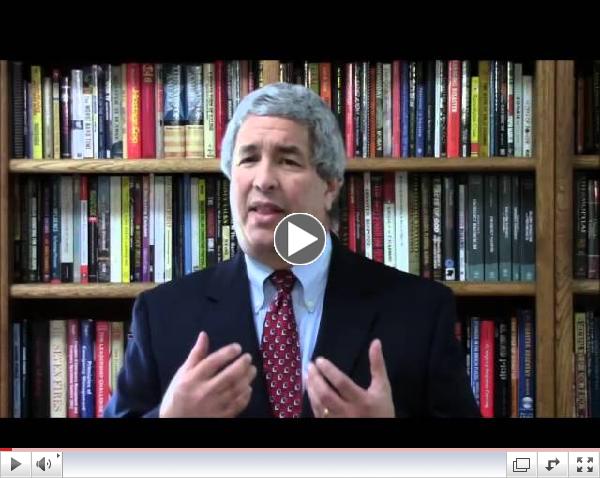|
|
| Deadly Storm: Galveston 1900 |
The hurricane that struck Galveston on September 8, 1900 was the deadliest hurricane in US history. The Category 4 storm produced winds of up to 145 MPH and completely covered the city of Galveston whose maximum elevation was only 8 feet. The number of dead is unknown but estimates range from 6,000 to 12,000. This documentary makes draws parallels with Hurricane Ike in 2008 and shows how the storm completely altered both the future of Galveston and how the US deals with hurricanes. It also highlights the importance of early warning and evacuation.
|
The following are excerpts from my blog
Canton on Emergency Management. Please visit my blog to see the rest of my articles.
In our haste to help disaster victims we can easily become part of the problem or the victim of fraud.
|

What Is The Leadership Challenge?
 Is leadership a learned behavior or an innate personality trait? While there are certainly naturally charismatic individuals who are considered "born leaders", leadership is a measurable set of behaviors that can be learned and taught. This is the conclusion arrived at by researchers Jim Kouzes and Barry Posner after years of rigorous research. Starting in 1982, Kouzes and Posner set out to understand what happened when leaders performed at their personal best. They conducted hundreds of interviews and reviewed hundreds of cases studies and survey questionnaires. What emerged were five fundamental practices common to extraordinary leadership achievements:
- Model the Way
- Inspire a Shared Vision
- Challenge the Process
- Enable Others to Act
- Encourage the Heart
The Leadership Challenge begins with a 360-degree assessment of thirty leadership behaviors associated with the five practices, the Leadership Practices Inventory. The results are used to identify opportunities for improving as a leader by increasing the frequency of specific behaviors. Based on over thirty years of research, the Leadership Challenge is an effective and practical tool for leadership development.
To find out more about the
Five Practices of Exemplary Leadership
, consider taking
The Leadership Challenge
. Just click on the icon below for more information:
|
|
| Click here to take The Leadership Challenge |
____________________________________

The Leadership Challenge: How to Make Extraordinary Things Happen in Organizations
by James M. Kouzes
The Leadership Challenge is a registered trademark of John Wiley &
Sons, Inc.
|
Free Resource Guide for Solo Consultants
For solo consultants, true wealth is discretionary time. Don't waste yours on simple tasks that can be handled by technology. This free resource guide reveals the four essential online tools I use to manage my solo consulting practice and save hours of valuable time. And the best part is - they're free!
 Interested in exploring the world of consulting? My membership site might be just the resource you need to get started. You'll have access to blogs designed to answer very specific questions, a resource library of templates and articles, the opportunity to network with peers, and discounts on coaching and training programs. Download the free guide or click on the logo above to go straight to the site.
Interested in exploring the world of consulting? My membership site might be just the resource you need to get started. You'll have access to blogs designed to answer very specific questions, a resource library of templates and articles, the opportunity to network with peers, and discounts on coaching and training programs. Download the free guide or click on the logo above to go straight to the site.
|
 |
| My Website |


M
y Blogs
Follow Me
 |
|
Archive
|
|
|

Welcome to the August edition of Emergency Management Solutions.
As I write this many of our colleagues around the world are involved in emergency relief operations.
In the United States, the city of Houston is underwater after being pummeled by Hurricane Harvey in what might well prove to be the most destructive hurricane in US history. Other Gulf states are also feeling the impact of the storm. Ironically, we're having a different issue here in the Western US where wildfires are burning in 11 states.
But the US is not the only one being hit hard. In south Asia the monsoons have killed over a thousand people and affected 41 million people in India, Bangladesh and Nepal.
Now, more than ever, what we do matters.
Regards,
|
|
_________________________________________________
Should We Evacuate?
The decision to evacuate depends on many complex factors
|
|
|
As I write this, the city of Houston is underwater after days of continuous rain from Hurricane Harvey. The Mayor of Houston is being criticized for his decision not issue a mandatory evacuation order.
I can understand the concern but I believe it is unfair to judge decisions made in a crisis until the crisis is over. Once the results are known and the after-action reports completed there will be time to apportion any blame.
I'm willing to bet that those criticizing the mayor do not have a clue about the complex issues involved in deciding whether or not to evacuate a major urban area. It's not just a case of saying, "Everybody leave now." Making the decision to evacuate requires balancing key elements of risk, time, and preplanning.
_______________________
________
If you are having trouble viewing my featured article, try clicking on the link at the top of the page. You can always find my articles in the white paper section of my blog site,
Canton on Emergency Management.
|
|
Limited Resources for Regional Evacuation Planning?
The annual recruiting drive for the International Association of Emergency Management continues until the end of August. If you're not yet a member, you really should give some thought to joining. IAEM is both an excellent source for professional development and a strong advocate for the emergency management profession.
Hurricane Harvey is a good reminder of the need for evacuation planning. This goes not just for those jurisdictions that may need to evacuate but those who may find themselves hosting evacuees. These are usually rural communities with limited resources that can be rapidly overwhelmed. In a 2008 report entitled
Urban to Rural Evacuation: Planning for Rural Population Surge researchers Meit, Briggs, and Kennedy reported the following:
Close to one-third of urban residents intend to evacuate against governmental advice, and between 77% and 91% of urban residents intend to evacuate if the government suggests or orders an evacuation. In each scenario, 55% of respondents indicated that they would be likely to travel to a rural destination.
As the evacuations in Hurricanes Rita and Katrina demonstrated, our transportation infrastructure is not designed to accommodate the massive level of vehicular traffic produced by even a controlled evacuation. This means that we need to pre-plan the use of all available means of transportation.
The bottom line is that evacuation is a regional rather than a local planning issue. Unfortunately, it isn't easy to find guidance on how to develop regional evacuation plans. The Federal Highway Administration offers two documents that are useful planning tools:
Using Highways for No-Notice Evacuations and
Using Highways During Evacuation Operations for Events with Advance Notice, as well as other documents integrating emergency operations and transportation resources. There is also a large body of research on evacuation and after action reports on major disasters. There was a considerable amount of work done under the Regional Catastrophic Preparedness Grant Program.
Evacuation of a large urban area is not something you can do on the fly. Neither is the creation of a reception center. If you haven't started planning for it, there's no better time than now.
Professional Development Opportunities
N
ovember 10-15, 2017
Long Beach, California
The goal of the IAEM Annual Conference is to improve your knowledge, competency level and collaborative skills. IAEM attracts high-profile speakers to address current topics and practical solutions. The conference draws exhibitors who are the top suppliers to the fields of disaster preparedness and homeland security.
|
|
|
Escaping the Job
On the television series, Star Trek: Deep Space 9, two of the characters share traits with many emergency managers I have met. Chief Miles O'Brien and Dr. Julian Bashir are dedicated and competent individuals totally dedicated to their jobs. O'Brien's idea of relaxation is to spend his evenings reading technical manuals; Bashir conducts medical research for relaxation. Their focus on their jobs is almost total.
But not entirely. Even though they are from to different professions, one an engineer, the other a physician, the two are best friends. They spend time together sharing a drink and engaging in a game of darts. Surprisingly, they also participate in reenactments of historical events such as the Battle of Britain or the siege of the Alamo.
The interesting thing is that, as dedicated to their professions as these men are, they feel the need to relax by doing something completely unrelated to their jobs. They understand that doing so provides a much-needed mental break. Add to this the ability to share ideas and gain insight from someone outside your profession provides a new perspective on problems. Often a conversation with someone outside your profession can give you just the insight you need to solve a thorny problem.
Whether your escape is reenacting history, engaging in amateur theatricals, learning an instrument, or fishing doesn't matter. What your friend does for a living doesn't really matter. What does matter is shutting off your job occasionally, stepping back, and gaining perspective. It's fun and definitely worth the time.
|
 Isaac's Storm: A Man, a Time, and the Deadliest Hurricane in History Isaac's Storm: A Man, a Time, and the Deadliest Hurricane in History
Erik Larson
This book tells the dramatic story of Isaac Cline, the meteorologist whose failure to warn authorities of the hurricane approaching Galveston on September 8, 1900 lead to thousands of deaths, including that of his pregnant wife.
Cline's experiences in the hurricane mirror those of many others. He is the lens through which we view the impact of a Category IV hurricane on an unsuspecting community. But is also a story of redemption for both Cline and the city. Galveston never recovered fully but it built a seawall that saved countless lives when another hurricane struck the city in 1915. Cline himself went on to become chief weather forecaster for one of the new regional forecasting offices and developed a reputation as one of the most reliable forecasters. He was chief meteorologist during the Great Mississippi Flood of 1927.
|
|

Emergency Management: Concepts and Strategies for Effective Programs
by Lucien G. Canton

|
|
Need a speaker for your next conference? I offer keynotes, seminars and workshops.
 |
|
Three Reasons Why I'm the Right Speaker for Your Conference
|
|
|
Speaking Engagements
Collaborative Sheltering: The San Francisco Experience
International Association
N
ovember 10-15, 2017
Long Beach, California
|
|
| |
|